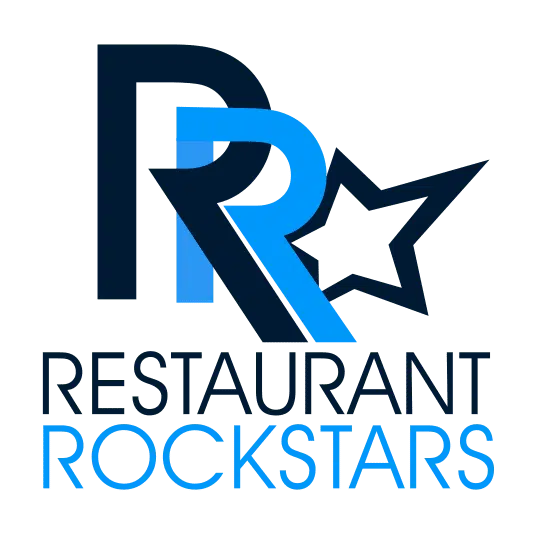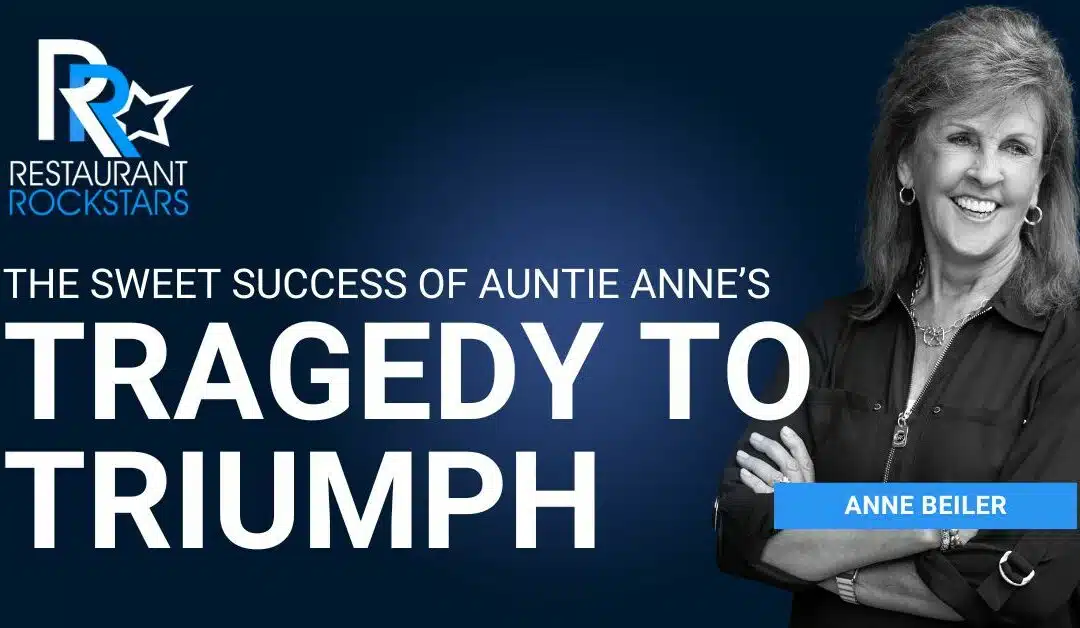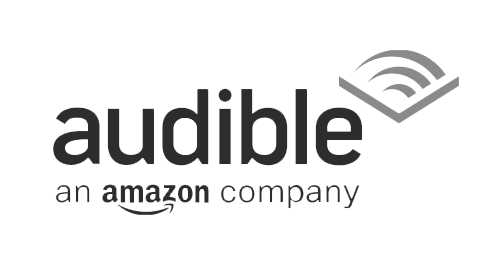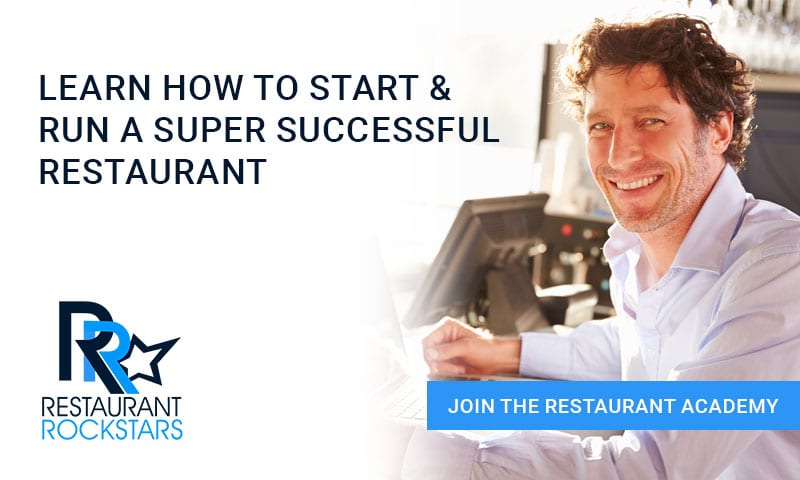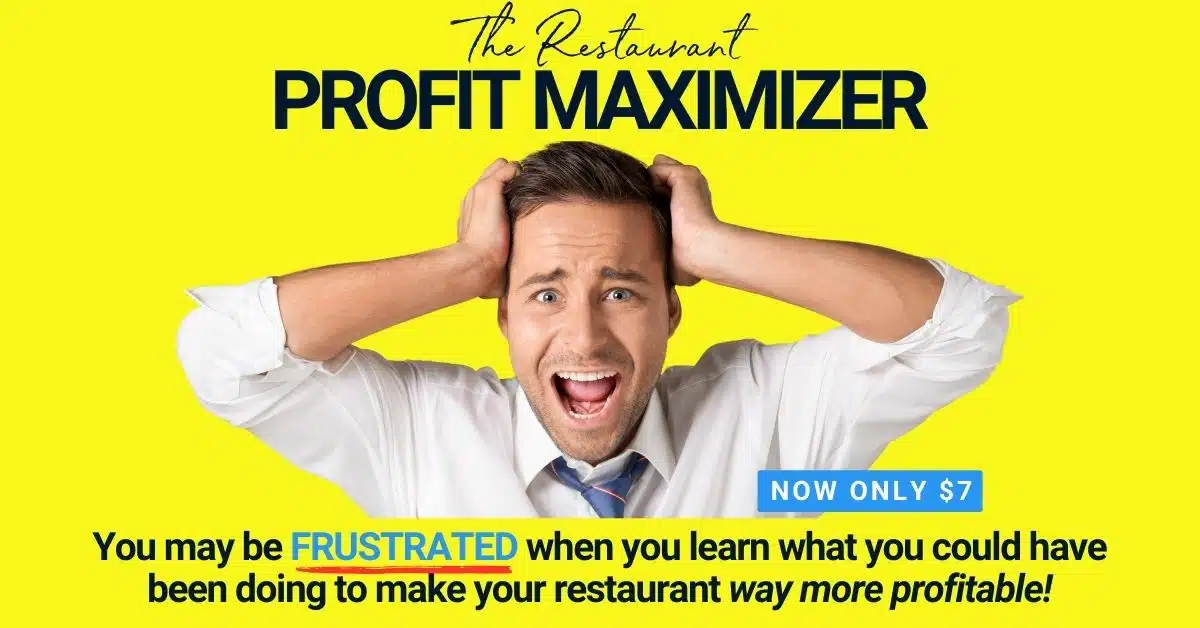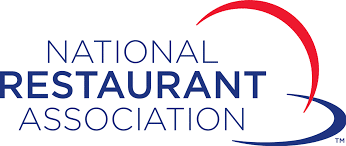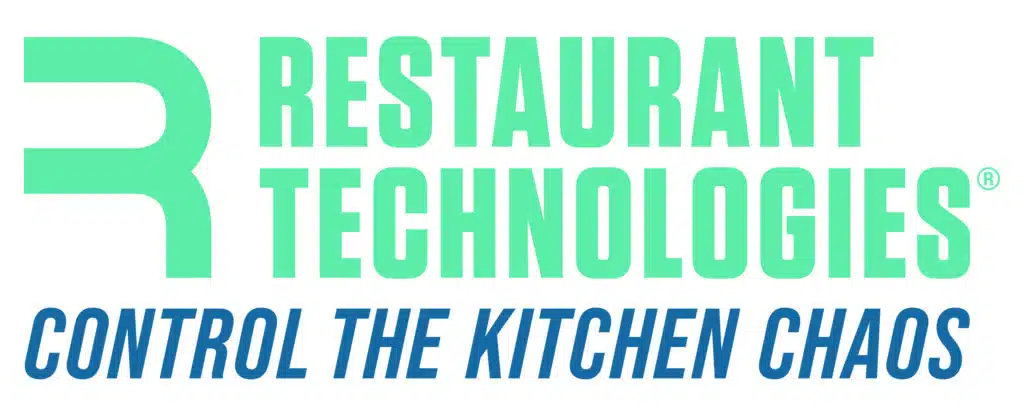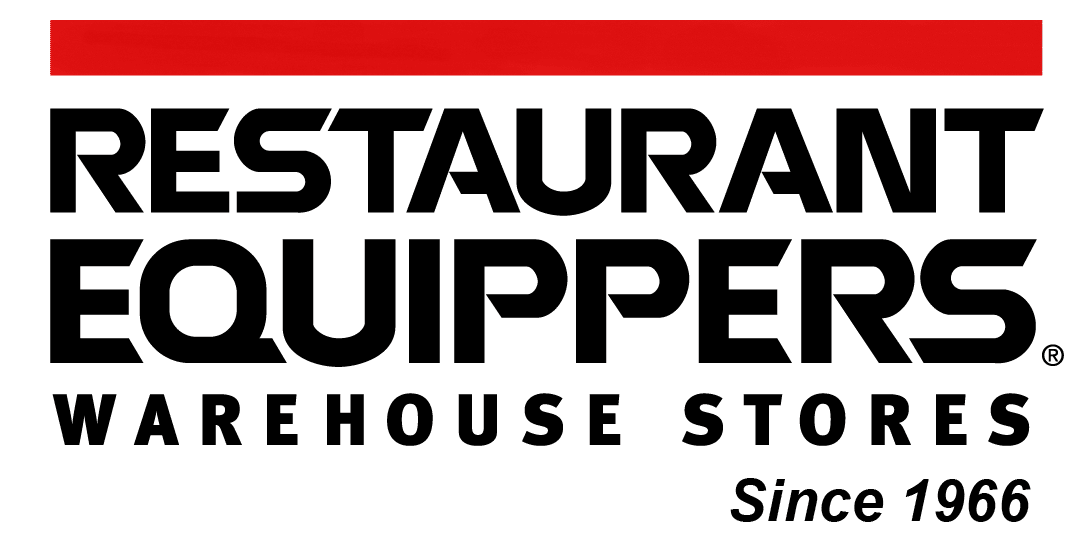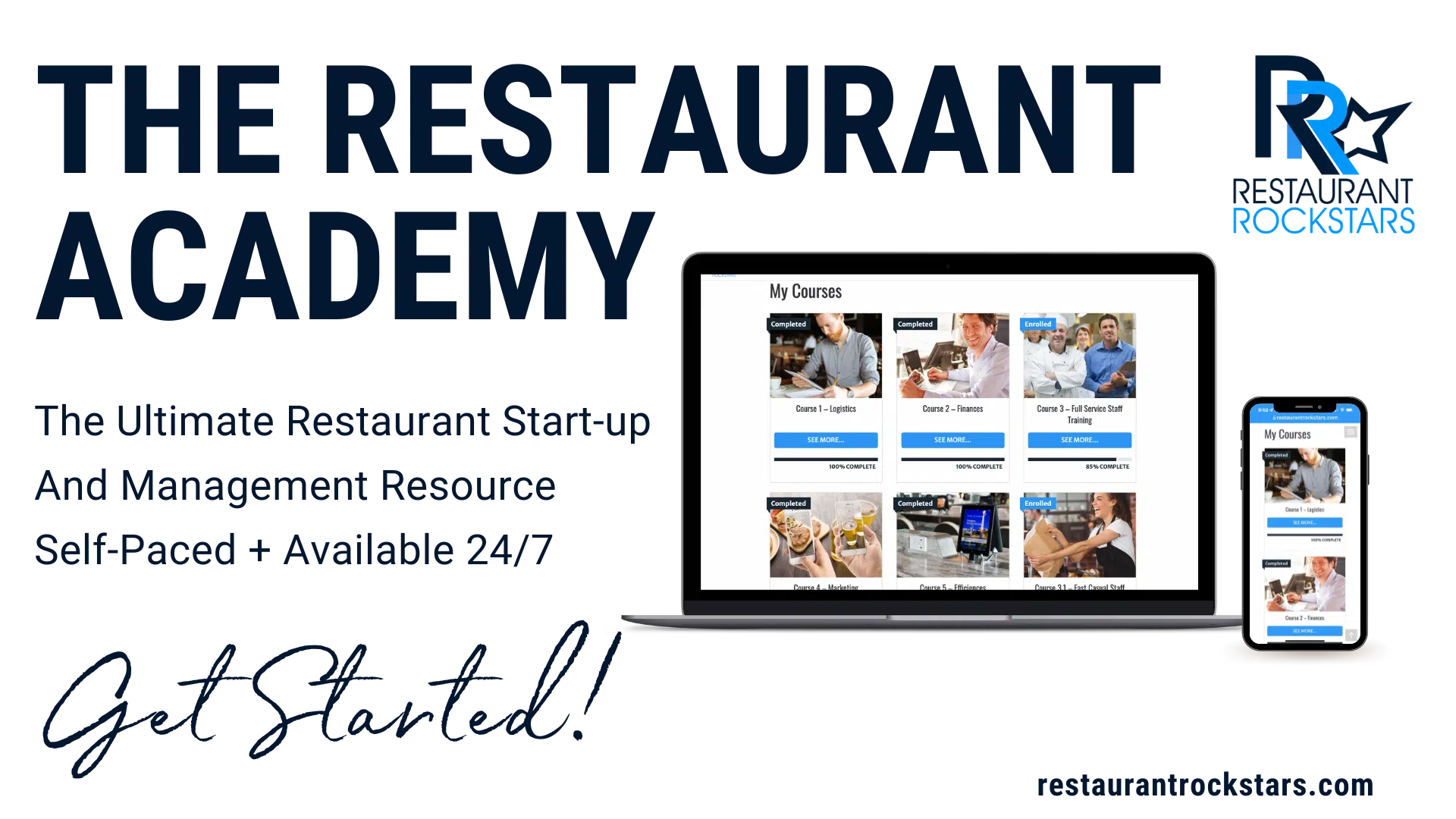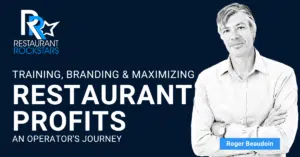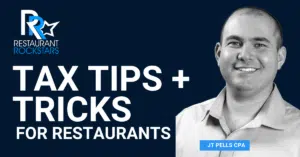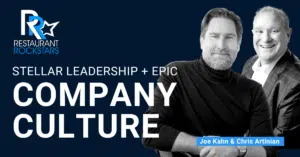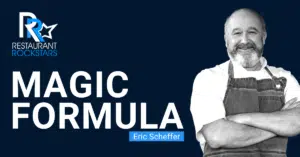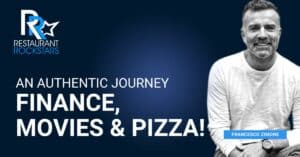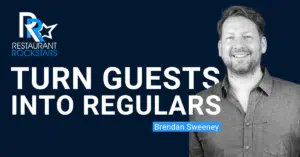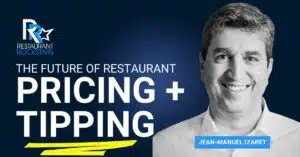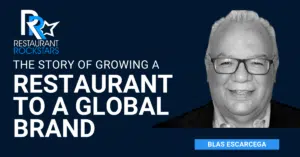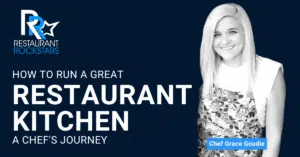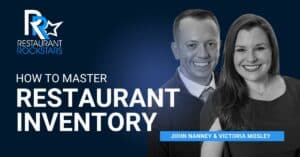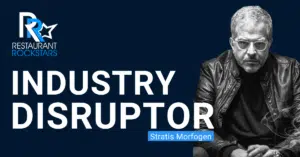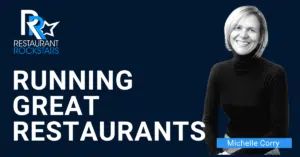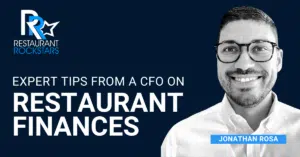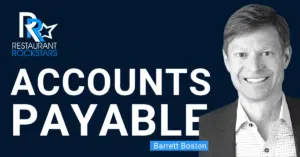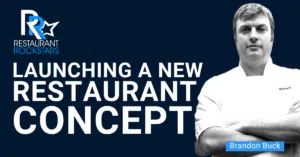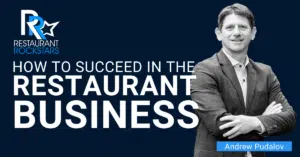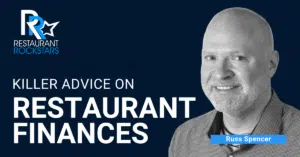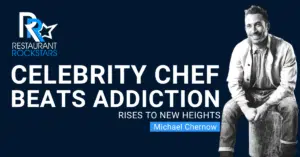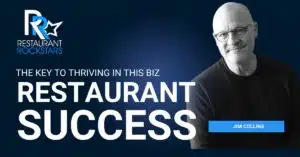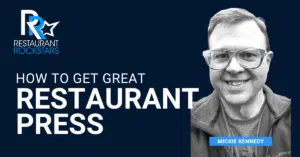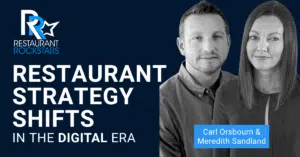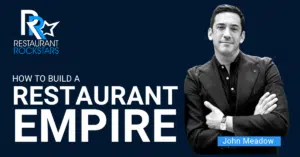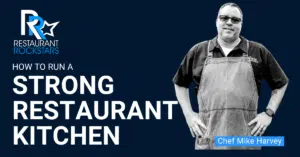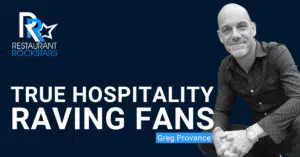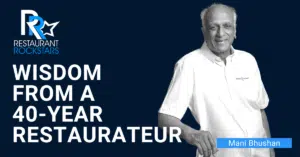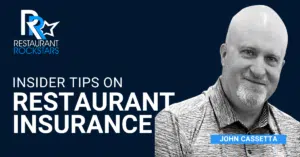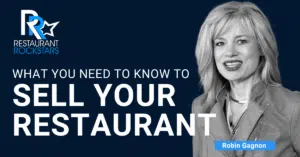Restaurant Rockstars Episode 386
Tragedy to Triumph: Perseverance, Leadership & Restaurant Success
LISTEN HERE OR ON YOUR FAVORITE PODCAST PLAYER
Restaurant success can be an elusive challenge.
Despite our best efforts, today’s pain points are the most difficult and it’s easy to become discouraged. But, if you truly have a passion for the restaurant business, today’s guest will inspire you to greatness!
In this episode of the Restaurant Rockstars Podcast, I’m speaking with Anne Beiler, the founder of international restaurant success story “Auntie Anne’s Pretzels”.
Anne learned the meaning of hard work, integrity, and persistence at an early age, but had many moments of doubt and lack of confidence. Despite all odds and immense personal tragedy, Anne rose above her challenges to create a global empire.
Listen as Anne shares her story of restaurant success including:
- How she overcame heartbreak, the limits of an 8th grade education, no money, and no business plan to create huge restaurant success
- Instilling values and recognizing your people’s talents and successes
- The true meaning of leadership
- How one word “Light” created a powerful restaurant culture
- Marketing mistakes that led to greater successes
- Marketing product quality with “sampling” to drive business
- Advice on growing from 1 location to 5 and even more
- Your team delivering great guest experiences are what it’s about
Whether you’re running a single location, adding locations, or creating your own empire, Anne’s approach is more than inspiring.
Don’t miss this episode!
Listen, would you spend less than the cost of a fancy beer on boosting your restaurant profit?
That’s right for just $7, our Restaurant Profit Maximizer course will show you proven ways to boost profit in your restaurant. Check it out – https://restaurantrockstars.com/sp/restaurant-profits and then go Rock YOUR Profits and YOUR Restaurant!
Roger
Connect with our guest:
- Facebook: Auntie Anne Beiler
- Instagram: @auntieanne
- website: https://auntieannebeiler.com/
Welcome back to the podcast. Wow. Today’s interview with Anne Beiler, who is best known as the founder of Auntie Anne’s Pretzels an international franchise powerhouse that she has since sold, is really a story of inspiration and learning at a very young age the true meaning of responsibility and leadership and recognizing others and overcoming tragic circumstances to do dig deep , despite overwhelming grief and odds, moving forward and building a business and making the world a better place. We cover leadership. We cover staffing and people. We cover systems in restaurants that make them successful. We cover how to grow your business. locations from one to many. This one covers a lot of ground, so you’re not going to want to miss it.
Thanks so much to our sponsors this week. Thank you again to the audience for tuning in, and I’ve said this several times in the past couple of weeks, if you haven’t already, It’s worth your time to check out the Profit Maximizer. In the show notes today, you’ll see a link for less than the cost of a craft beer.
Just $7. We’re giving you ways that you can boost the profit needle in your business and make an immediate significant difference in your sales and profits. It’s very powerful stuff. So what do you got to lose? It’s only seven bucks, check it out. It’s powerful. Now on with the episode.
You’re tuned in to the Restaurant Rockstars Podcast. Powerful ideas to rock your restaurant. Here’s your host, Roger Beaudoin.
Rockstars, in my restaurants the fried foods were cranking out of the kitchen, but dealing with the fryer oil and cleaning hoods from all that grease, what a hassle. Not only the high cost, but the mess of changing and recycling oil, scheduling cleanings, you’ve got more important things to run a great restaurant.
Well, that’s where Restaurant Technologies comes in. They serve 40,000 restaurant and hospitality customers in 41 major markets across the U.S. They handle everything, end to end, from delivering, filtering, monitoring, collecting and recycling your waste cooking oil. No more mess. Safety hazards, workers comp claims, or fried food quality issues.
Plus, this frees up your labor, and the cost, to work on what matters, putting out the best food. Restaurant Technologies also eliminates the need for scheduling third party hood cleanings. AutoMist can reduce the risk of fire with automated hood and flue cleaning, hassle free. Restaurant Technologies customers can save 10-15% percent on their insurance premiums and even get bonuses for any new customer referrals.
Control the kitchen chaos with Restaurant Technologies. Go to rti-inc.com or call 866-399-3639 to get started today.
listen, hospitality is constantly evolving. At the 2024 National Restaurant Association Show, you’ll find everything you need to plate up success for your operations. Whether you’re looking to satisfy shifting diner expectations, navigate razor thin margins, or capture data driven strategies to boost marketing or offset labor challenges, take it from me, the show has your missing ingredient.
See tomorrow’s ideas come to life and explore over 900 product categories from award winning food and beverage items to innovative back of house equipment and technology. Believe me, this show is huge. Visit the official show website at www.nationalrestaurantshow. com and register with promo code PODCAST24 to save $55 off the current show rate.
To stay on top of your business and ahead of what’s next in hospitality, it’s the biggest show for food service, only in Chicago, May 18-21. Promotional offer expires on May 16th.
Hey, everyone. Welcome back to the Restaurant Rock Stars podcast. And Anne, welcome to the show. So glad to have you here.
Thank you, Roger. I’m honored to be on your show today.
Well, you have a super interesting story. Now, not everyone is a natural born leader or an empire builder, but you suddenly became these things.
Everyone has a formulative story. And for you, it began as a young girl In Lancaster County, Pennsylvania, as an Amish girl, and I believe you had an eighth grade education. I don’t want to tell your story, but it really starts there. And it literally led to international success. So start from the beginning and tell us about your formulative years and what you learned and how that then was applied to your business.
Well, thank you, Roger. And I believe all of us are shaped and formed by our family of origin. We, so for me it was in the Amish setting on a farm in Lancaster County. There were eight of us kids parents, mom and dad who loved us dearly. And it was almost an idyllic life as I look back on that now.
And but mom and dad were always there. Every time I say that, I feel something in my heart welling up. I’m grateful that I lived in the era when parents were in tune and intact. And they were there. I love that because that really shaped and really gave me a foundation to then weather the storms of life that were gonna, that came my way.
So I feel like I was very blessed being, growing up in that culture. Was it perfect? No, but it was it was a very good start for me. And, mom and dad were, they were really our examples and I was shaped by faith. Family, community, and hard work. And hard work was the order of the day.
There was no, I’m not going to do it. I don’t feel like it. It was just, you did what you were asked to do. And I learned to do that with with pride because I knew the end result of doing what mom and dad asked me to do. I knew that they appreciated it. And I also knew I was contributing to the needs of the family.
So the family, Eight of us kids on a farm we were poor folks for sure, and around the kitchen table, we learned how to share. We, sometimes our food was portioned out to us, or we were told not to take too much. It needed to go around the whole table. Those little things really taught me how to think about others.
And then when we were out in the garden or out in the field picking acres of tomatoes trying to make some cash money on this farm we actually learned how to be competitive. And we would be in the tomato patch and we would try to see who could fill the most baskets on a hot afternoon on the farm.
So there was this bantering back and forth constantly on the farm with all eight of us kids. So I didn’t know that then, Roger but it really. taught me how to be a good team player, and to know that some days you win, some days you lose. And then my dad, he he was a farmer at heart, but never really He was able to make enough of money just farming, and so he went to Farmer’s Market in Philadelphia, which was about a two hour drive from our farm in Lancaster County.
And I think that was the beginning of, it was an eye opening experience for me because living on this farm, we were somewhat secluded, somewhat isolated. And yet, my dad read the paper every day and we would often talk about the news around the kitchen table. So we weren’t completely isolated, but we had no radio we had no nothing, no technology of any kind back in the day, no TV.
So going to Philadelphia really opened up my eyes to the world at large. The different cultures, all kinds of people came to this farmer’s market in Philadelphia. And I remember,
I remember seeing my dad, he would talk to everyone. And I was always amazed you don’t even know who these people are. How do you act like you know them? And so he made friends with all kinds of in the ethnicity, in the groups of the ethnic groups with all kinds of people. We would invite some of them to our homes for dinner, two hours away, and they would come and visit us on the farm.
So I think that was the beginning of my understanding that the Amish way and the Amish world is really not the only world. And I began to embrace all of that as a little girl. I was probably nine, 10, 11. During that time.
So your dad was literally teaching you, well, authenticity, of course, because clearly he was reaching out to people of different cultures in the big city.
It was completely foreign to the way he grew up, I’m sure, but there was also, a selling. sort of aspect to this or a marketing because through his genuine communication with his customers, you said he was making friends with them. And then of course they were becoming perhaps even regulars where they would come back because it was a relationship that he had built.
It wasn’t just about selling the products he sold. And that’s a key example for restaurants today, and when you train your staff, they need to know the product and the restaurant knowledge. They need to make friends with the guests. They need to deliver amazing experiences through the personality, which then leads to repeat business and even, Hey, I want to ask for that person the next time I come in because I had a great time.
And that at a very basic level was, is very influential to you I’m hearing. Is that
true? Yeah, it’s very true. And I think that some of the, there are some principles that are just, timeless and just the basics that I’m sure that you’ve used in your business. It just simply be nice to people and have a consistent product and treat your customers with respect.
And I saw my dad do that as a little girl. Now I didn’t understand what that meant then, but it shaped me. And I just, I’m just grateful that he believed in me as well when it comes to, I used to bake pies for that particular farmer’s market. And Thursday night for about two years, it was the only night that mom was not there when I got home from school.
And she was with my dad at the farmer’s market, but my mom would have a note on the kitchen table saying she called me Anna Betts. That was her pet name for me. And she’d write on there how many pies that she wanted me to make and it totaled like maybe 60 or 70 pies. I walked down the basement steps crying because I didn’t want to do this alone.
I wanted mom to be there. So in that way, I really learned. How to be persistent and to, just to put your head to the plow, so to speak, and do the work. And I remember I would, I did all of that by myself and most everything We made from scratch. And I got up the next morning and my dad would put all the pies in a little pie case and he would tell me in Dutch, Pennsylvania Dutch, that I did a good job and we’d go to market and sell the pies that I made as a little kid.
And you got pride from that. I’m sure. One, self sufficiency, and then pride of getting the approval and recognition by your dad, which is important, and feeling like you are contributing to the greater good of your family, but then watching your product sell and be enjoyed by the customer. Like all those things are just gratifying and life lessons learned there for sure.
Absolutely. Cool. You’ve also had some really tragic events happen to you that shaped you not only as a person in a humane way, but also as a business person. Do you care to share any of those things and what you learned from them and how you moved on from them?
Absolutely. I love sharing my story because I know that I’m not, I was, I’m not the only person in the whole wide world that experiences tragedy, trauma, abuse, all of that.
We all experienced some of that. And growing up Roger, I, my, my plan was that I was going to be a really good girl. I want to please my parents and I wanted to please God and I wanted to one day have my very own family and be a good mom. Good wife and have beautiful kids. So that was really my dream.
I never thought about a career. And so we, I married a handsome dude, Amish guy, hard worker. And we both had the same goals and dreams and we’re married a few years. We had two daughters and we were living our dream and life was good. And I guess I was being a pretty good girl by now. I’m a good, pretty good wife.
Possibly a good mother. I did my best and so we were headed for just a good life. And I was so grateful for everything and It couldn’t have been better for us. It was almost an idyllic storybook marriage. It was just amazing. My husband was a great man. And but we found ourselves facing trauma very suddenly one morning, our 19 month old daughter, who lived we lived next to my parents and between our parents.
Homes, there was a barn and my dad was making stone siding and my sister was driving the bobcat or a farm tractor and she would load and unload sand and every morning she’d do this and Angela would, and her sister would walk up to see my sister and she would pick them up and put them on the tractor and they just had fun together.
It’s what you do on the farm, but that morning my sister looked around to make sure nobody was there and she packed up the the payload. Yeah. And when she went to move it forward, she saw the body of Angela, our 19 month old little girl. Oh my. And she was killed instantly that morning.
And so it was many years ago. Yeah. But I should tell you the story. Yeah. I still feel it. I see it. I know, feel the loss of it, but you do move on from there. And the, what we learned through the tragedy of losing our daughter is that. Pain is part of life, and my pain was real. It was the grief and the emotional pain and the spiritual confusion that I didn’t understand why.
And so by invitation, I went to see my pastor, who I knew he would have some answers for me. And we were no longer in the Amish community. We were, had moved on from the Amish culture. So this was not an Amish pastor, but as we, as I went to, See him that morning. I was telling him my story and my grief and just unloading.
And at the end of that, he took advantage of me physically. And I didn’t understand what just happened. I didn’t even know about spiritual abuse or abuse of spiritual power or sexual abuse. That was just not on my radar. But that morning I was shocked and stunned. And I walked out of that office and I said, I will never tell.
And that one secret then, Roger, kept me in an abusive relationship of all kind for, for nearly seven years. At the end of that, I thought life was over, but
That would destroy most people, especially when you keep things to yourself because of embarrassment, because of shame, because of perhaps personal guilt.
Did I contribute to this? I mean, all these questions go through your head. I think the common reaction would be to, like you said, hold it inside, Which is harmful to people, right? You can find healing through sharing what you’re doing now. And I’m sure you did that then. So yeah, continue. Thank you. It was
so thank you for understanding it, but we often feel like we don’t have an option.
Whatever happens to us when it comes to abuse of any kind, I, for some reason, we feel like we can’t tell, we don’t have that option. Who will listen? Who would care? Well, the opposite is true. That’s what I found out seven years later. So I want to encourage your audience. Don’t do it my way.
I think that when these kind of things happen to us, it’s really important that we share it. immediately with somebody that we can trust. Maybe not a good idea to sit around the bar and spill your, spill your guts, but find a trustworthy person that can, that will listen to you.
And as you begin to talk, the trauma of all of that begins to subside and it won’t have its, it won’t have its hold on you as it did on me in my secret life. So I do encourage people to find courage within. And I prayed a lot. I asked God to help me and eventually we got through it. Thank you
so much for sharing your personal story.
Let’s go back a little bit again and talk about a farm stand. Because I know that you had an early opportunity to manage a farm stand after just starting. for a week and your boss saw something special in you and he recognized a future and you had some spark or something special and that person put trust in you and said go and then that farm stand led to many farm stands and then you were a poor person you mentioned but then someone offered to loan you a lot of money and to you was all the money in the world and you’re like wow it’s What do I do with these emotions?
Can I really do this? It’s do I have the confidence to do this? Do I have to find the confidence to do this? Tell
us your story there. These are fantastic questions, Roger, and I’ll try to keep them as, the answers as short as possible and still tell the story in the way it’s impactful to your audience, but so it was five years after the trauma that we experienced when I told my husband, my secret, which was the hardest thing I’d ever done.
It probably in my entire life, but that changed the trajectory of. Our relationship of our family’s life and five years later, again, we worked through a lot of stuff, but five years later, we, I found myself asked to be an employee at a farmer’s market in Burtonsville, Maryland. And I, at that time, I still, you have to understand, I still didn’t feel confident in myself.
I was still battling a lot of the demons from my past and feeling not good enough, or I can’t do this, or kind of in a whiny position, didn’t mean to be, but just feeling still somewhat defeated about who I really am on the inside. And so when this gentleman asked me to work for him I said, sure I’ll go to the market.
And, but by the end of the day He came to me, I worked for one day, and then he came to my home on a Monday morning and he said and he said, I need a manager at my farmer’s market and I like for you to be the manager. And I, I started crying. And I said to him, you want me to be the manager?
And he said, yes. Yeah, and I said, why? I have never done this before. And he said, I believe in you because I saw something, I see something in you that I feel like I need at my market stand. And Roger, when he said, I believe in you, if as business owners, we would be verbal with our employees, and we would, speak into their lives but I have told this man, his name was Dave Ash, he is since deceased, God bless him, but I’ve told him many times, if you would not have told me that, I don’t, I really don’t know that I would have gotten the confidence to be a manager.
I, I just don’t know that I, but he continued to tell me that. So the power of our words, our employees, and yes that one sentence from A man I barely knew. He, I knew him for one day. And then we had opportunity to, but I stayed there for seven months, which was long enough for me to huh, I like this.
This is fun. I like being a manager. And I don’t know, it, I didn’t realize it was inside of me, but so then that gave me the confidence. And we were, when we were to buy a stand that was 20 minutes from our house. The other stand that I was going to was two and a half hours away.
Wow. Oh
my gosh. There’s a commute.
There you go. There you go. Sometimes you just make a, some things are just common sense, and that was one of the factors when I got to call about the market stand in this other market being for sale. And we asked the people how much they wanted for the market stand.
They said, $6,000. Now, as you mentioned, that may as well have been a million dollars back there because we had No money in a savings account. We had no money in our checking account because all the money I was making was literally We’re paying our bills. That’s what we were making and so when they said $6,000 I looked at my husband because he was back in the day.
We had the wall phones, Oh sure, we had one of those too So I whispered to him they want $6,000 so I just responded to them. I said, yes we’ll bring a check over to you tomorrow. We want this store. We’ll bring the check tomorrow. Because I knew that Jonas Stad, who we call Pop, he was a very wealthy Amish man.
And so we went to see Pop that night. And ask him about the money. And he gave me a check and I’ll never forget, Roger, my palms were sweating. Like I’m thinking, how am I ever going to pay this back? And I said to Pop, I will, I promise you, I will pay this back as soon as I can. And he looked at me and he said, Anne, I trust you.
So when somebody believes in you and somebody trusts you, hey, I don’t know, but the sky’s the limit. Then all you need to do is learn a trade, and then develop yourself within that within that opportunity that you have. That’s called character
right there. Character, motivation, inspiration.
And I’ll take this all the way to the edge, but I will pay this person back and I will not fail. If someone put trust in me, that’s what I’m hearing.
Yeah, that’s exactly right. And He became, actually became our banker for the first, maybe, three years of Auntie Anne’s, and we paid him back every penny.
And how did this lead to an international franchise called Auntie Anne’s? I mean, that’s a story unto itself, but wow, right? This is a monumental story, so we want
to hear it all.
Operators and managers, my restaurants were all about delivering experiences and creating memorable events. You might say we curated experiences that exceeded our guests expectations while we dominated the competition. We also had lots of big charge admission parties and live music shows. So let me tell you about TOCK, the industry’s first reservations platform.
TOCK provides tools and support that empower restaurant partners to thrive by adapting to changing times and guests tastes. Tak’s industry experience team take great pride in solving the toughest problems faced by your restaurant. From flexible reservations and a solution for no shows to curating memorable experiences, TOCK provides your restaurant everything you need to bring your vision to life now and in the future.
With TOCK, you can showcase the best of your restaurant in one place. You can turn a table, a meal, or even a Tuesday night into an experience that you can sell and market on TOCK, driving revenue from every seat. TOCK customers rave about the support and commitment to hospitality that their guests experience.
Request a free demo today at joinTOCK.com/podcast.
Rockstars, when I needed equipment for my former restaurants, I called Restaurant Equippers. Restaurant Equippers has served independent food service operators just like you going on 60 years. You’ll find all the top names and extensive inventory at their huge warehouse stores in Ohio, Michigan, and New Jersey.
You can shop Equippers.com or call their National Order Office at 800-235-3325. Their experienced specialists will help you get the best equipment and supplies and save you money. Thousands of name brand products are available for immediate store pickup or shipment. Just like me, when you need something, you need it now.
Restaurant Equippers will make sure you get the equipment and supplies you need, when you need them, at a price you want to pay. They shop the world to find the best products and value. Give Restaurant Equippers a call for all your equipment and supply needs or check their website, equippers.com.
There’s some great entrepreneurs out there and I’m in touch with many of them. And I speak at a, at an event once or twice a month called Life Surge.
And so I meet all these want to be entrepreneurs. And then I also meet lots of very successful people that are speakers at this event. Wanting to be an entrepreneur is such a, it’s the cry of so many people. I want to be, I want to be, help me. And You know what I respond, or what I know, I don’t respond to this in this way all the time, but what I know is that a successful entrepreneur is someone who will persevere.
It’s someone who will never take no for an answer. It’s someone who will never quit. And perseverance simply means that the in my opinion, the meaning for it is you do what other people don’t feel like doing. You’re the person that’s going to go into the, wherever you’re working, you pick up the room, or you serve your employee’s coffee, or you clean the bathroom, or I don’t know, you do all of it, and you just become a part of the people that you hire.
And so early on at Auntie Anne’s It was never about, so three things that we did not have when we started the company. We had no formal education. We had no capital. When I say that, I mean that I’m not stretching. We had no extra money, no money in the bank. So my dad, my father only gave us the $6,000. And we had no business plan.
So can you imagine we were setting ourselves up for failure, I mean, of course, but I didn’t know any better. I really didn’t. I just knew what we didn’t have was I didn’t I wish I would have had it. It would have been nice, but I didn’t have it. So at this time I was 40, 40 years old. And I wanted to, I went to work because I wanted to support my husband who had helped me through my marriage and through all my trauma and all that stuff.
And he went to learn about psychology. And so then he became intrigued and then he began to do family therapy and counseling as a free service to whoever would come to him. That’s why we started Auntie Anne’s. So number one what we didn’t have was it didn’t matter to us, but.
We know now that’s what’s expected when you want to start a company, right? But what we did have, we had a purpose. And that purpose was even before we had a business, we, my husband and I, wanted to help other people. And the other thing that we always wanted to do, but we never could, we couldn’t do it because we never made much money.
I always, in my heart, I wanted to give. I wanted to give to people. I wanted to help people financially. That’s, that was in my heart since I was a little girl. So we decided when we start the company we want to give. So we knew that was our purpose. And for him to be able to counsel free as a free service, number two.
So we had a great purpose. We had a great product. Anyone who knows about Auntie Anne’s pretzels, if I could get a clap off and hear you right now, I’d love to do that, but I can’t, but We had a great product. It was better than the best out there. And you have to believe in your product. And then number three, we had great people and Roger the issues that I should have had became a non issue because I began to focus on what we had.
And it was so exciting and so challenging and so daunting that all I could focus was to fulfill, do the purpose and. Make sure that our product is great and treat our people well. That, that became my mission. And that, that’s when I started the company, I really thought I was, I didn’t know I was a manager, but my former boss made me feel like I was a manager.
He gave me the title, put me in that position. And at the end of seven months, I felt like a manager and I loved it. And so when I went into Auntie Anne’s, I’m a manager. I had no idea really until we had maybe 35 or 40 people. 45 stores that I was called to be a leader. And wow, what a, an abrupt, that was that was a huge interruption because I loved, I’m a little Amish girl.
I want to do, I want to do, I love tasks. And you find a task and you get it done. I love that. But as Auntie Anne’s grew, and you ask about the international growth. I mean, you can only imagine, I couldn’t do it all. Initially, my husband and I built two stores the first year, and the next year, we built 12, and we had my sister and my brother in law helped us that year, the next year.
So now we had 14 stores, and I am still, I’m a manager, there’s no doubt about it. So the next year, we did 35 stores. Sometime during that time. My youngest brother came to work for us and he had formal education in business. So he came in and he became the head of the business and I was truly the heart.
So you were the people person. And you need both. Yes, of course
you do. Yes. Who invented the product and were you on the kitchen stove cooking the recipe and this tastes great? Tell us about the brainchild for pretzels. Why pretzels? How did you come up with the recipe? And that became the thing. I mean, that was the brand behind the brand, right?
The pretzel.
Well, I never made a pretzel in my life until I was 40. So I never worked in my kitchen, trying to, but at the farmers market at the one that we bought. Yep. So we’d never planned pretzels, but there was pretzels at the first market. And when we bought the store, they had pretzels as well.
Gotcha. Interesting. So we began to make pretzels and Pizza and ice cream. And we were doing that for maybe five, six weeks. And the pretzels were horrible. When I say horrible, I didn’t know, I couldn’t understand what was wrong because I was a baker. And I always knew if you had a good product, because people, my family would comment, I, when you have a good product, because people love it.
And we weren’t selling hardly any pretzels. One day I said to my husband, I’m just going to take the pretzels off the menu. I was very frustrated and he just looked at me and he said, here comes my husband to the rescue again, and he said to me, hun, don’t take it off the menu. Wait. He said, I have an idea that I learned in the kitchen with my mom, when I was a little Amish boy baking in the kitchen.
I’m like, huh, okay. So I said, whatever. So he goes to the store and comes back and we had our already existing recipe and he added the ingredients that he bought and the rest is history immediately. So when I talk about you have to have a product that compels people to buy it particularly, I mean, in, in any industry, right.
But particularly in the food industry, because it’s an instant like, I like it or I don’t like it, right? And so as soon as we had this idea, This formulated, it wasn’t hard. It was just, okay, we’ll try it. And that’s why we say that Auntie Anne’s is a modern day business miracle because every part of it, it’s like, it was not something that we had planned and, but the pretzel itself, I was going to take it off the menu.
Jonas brought ingredients that enhanced the recipe. And immediately, when I say immediately, like the very first customer that we had that day, I’ll never, I wish I knew who he was and wish I knew what his name was or take a picture. But he came and bought a pretzel and he paid and he turned around and took a bite of the pretzel and he looked at it and he turned around, looked at the store and then he walked back to me and he said, what is this?
And I said, it’s a soft pretzel. I didn’t even call it an Auntie Anne soft pretzel because I didn’t even have a name for my business at that time. I really exposing my. My story here, but I loved people. I knew I wanted a great product and that moment. That was the beginning of our success, that moment.
And from that point on, we could not make the pretzels fast enough. We would do as high as 92, we call them batches a day, which is almost 5,000 pretzels from nine in the morning to nine at night on our best days. But it was very common to do 60-70 doughs. So if you have an inferior product. Start over because there’s too much competition out there.
So when we knew we had this great product, then people, we never advertised for franchises, never. Not one time in the history, in the almost 20 years that I was at Auntie Anne’s, we never advertised for franchising, for franchisees to come join Auntie Anne’s. The way we got franchisees, they would come to us, they’d call us on the phone and say I was at your Auntie Anne store in Baltimore, Maryland, wherever.
And I tried your product and we’d like to do a franchise. So that’s how we got our franchisees in the almost 20 years that I was Auntie Anne at that. We sold the company in 05. So it sounds like
grassroots marketing was everything in it. The product sold itself. There was a buzz. People talked about it and you really didn’t need to spend a lot on traditional advertising.
One of my things I got so. I want to use the word anal, but overjoyed and so enthused about this amazing soft pretzel. And as I saw the response from people I was in disbelief and almost every morning I would go to work, it was only a two day farmer’s market.
The first year we made our income was about $200,000 because we did two stores that year. And wow, this was amazing. And so when I realized how great the product was, I got. Almost I made all of my employees. You have to sample. If I’m not at the market, you have to sample. And that’s, that was our marketing program until the day I sold the company.
It was mandatory as a franchisee to sample. And, some people whine about it. Some people like, no, I’m not too good at sales. I would go to the stores myself many times when their sales were like they weren’t what they expected or whatever. And I’d always say to them, are you sampling?
Well, and you gotta be passionate about your product. You have to
believe. It’s just a small. Taste bite. Was it a mini pretzel? What was the sample size?
We would cut the pretzels in 18 pieces. So it was about an inch, maybe a half. I don’t know.
The flavor, the texture, the whole thing, the zing, the zip, the salt,
all that.
Yeah, that’s right. The experience. Yeah. And so I would go to stores myself when they would complain about their sales. I went. And I would sample all day. And Roger, the sales would soar. Every
thing. Take one. Give me two. Give me three.
Yeah. I love it. Some things, being in business, we make it complicated, but honestly, I think if we can stick to the simple things, be nice to customers, make sure you have your great products.
Keep your store clean. Be consistent with your product. I don’t know. At what
point did did you say your brother in law became the business person? My brother. My youngest brother. Your brother. Okay. Okay. Gotcha. So let’s talk about some of the maybe financial practices that he put in place. Because, okay, you produce any product, whether it’s food or anything, and there’s a certain list of ingredients that goes into it, or whatever, right?
And every ingredient has a certain cost to it. And some restaurants religiously cost out their menu, and others just kind of randomly throw a price at something and just let it go. And if it sells great and they don’t know if they’re making money or losing money and they’re filling their seats and they’re not making money, but it’s was there any financial systems put in place in the beginning so that you knew how much it costs to sell every pretzel and how profitable everyone was?
And then there was inventory controls. And at what point did it become stale and you have to throw out a batch? I mean, there’s so much that impacts whether you make or lose money.
Roger, you’re talking about finances now, and what I know, what I knew early on about finances was, I knew how much money I made at the end of the week, and I would count my cash Saturday night when I got home from work at about 11 o’clock.
Yes. And what I knew was how much money we made, and I knew how much The product costs us for the week and the employees, I knew what our expenses were every week. Thank you. By Monday morning,
food and labor costs the biggest expenses in any restaurant.
Exactly. But I’m not a financial guru, so I can’t go each of this very deep.
Okay. So that’s fine, . My brother came in and he had that expertise and so Yes. We began to do all the things that you mentioned and I went from 55 cents for pretzels, three for $1.50. And I don’t want your audience to be bitter about that because I just travel all over the country and I just went to an airport where the pretzel was $7.29. I nearly want to have a heart attack on that. I don’t mind paying that much for anything. If I know when I get it, it’s better than the best. You know what I’m saying? But anyway,
so Well, there’s value. I mean, you need to offer value for your product. There’s also that, what will the market bear?
And what is the competition charging? And is this a reasonable price? And, inflation is happening and has been happening for a while. That’s correct. But that’s all a balancing point that you have to reach. And sometimes pricing a product is one of the hardest things that you do. But you raised prices regularly over the years, I’m sure, As just a matter of course or because the ingredients cost more, the process became, you had to pay your employees more.
I mean, all these things impact the price of goods. And at some point there’s this tipping point where the guest says, it’s not worth it anymore. Yeah. And, and now you need to make it up in volume, but you had multiple stores and now you get economies of scale. I mean, all these things play into your business model.
Absolutely. The product prices we did carefully and My team, management team, it was like pulling teeth from me. Like we have to do this because of this. Obviously, initially we were in farmer’s markets. Our rents were dollars a month. My one store was I think it was $500 a month.
Well, you go from farmer’s markets. Now you go into the malls where $35,000 for your rents. And now it’s I we’ve gone through that whole, the whole gamut and I’m really glad I’m not. in that business anymore because it’s so intense. Now the rents in the malls are anywhere some, I don’t know, $90,000 to $120,000.
I don’t know, but it’s unbelievable. So the price, yes, you do have to adjust your prices and because if you don’t You can’t go on. I mean, you have to sustain and do whatever you need to do. Be fair with your but if you’re going to raise your prices and make sure that your product equals the value of the price of the product because important consistency, which I mentioned earlier, great service consistency and a clean sparkling store.
These were three things that, that will keep, that kept coming back. And the other part for our company, which I heard all the time, we also believe that Auntie Anne’s was created. To give, but also to be light, like to, I wanted to own a company that not that it was perfect by any stretch. I wasn’t perfect, but I don’t even know how my employees like put up with me.
Cause I, the early years I did a lot of crying. I did, I was in it over my head, but you know, I just feel like we have to actually, lost my train of thought right there. Can you take me back?
I lost it. Yeah, I mean, well, again, we were talking about the processes and the business model and all those things.
You went back to, your strengths, the basics, the people, the focus on the quality of the product and all those
things. Absolutely. That’s right. And if you’re gonna, if you’re gonna make money in the industry, you really have to pay attention to all of those things. And for us, moving into the franchise world we did that after after, at the end of year three, we started franchising.
So when you move into that world, then you have franchise fees, all these. So many things. And then you also have the mall rents, which I mentioned. . And then you have, yeah, it was expensive. You have, for us, we, we began to hire the experts in the industry, so we wanted to be. Industry standard and above for our salaries.
So everything you put it all together, and there’s only one way to do it. You’ve got to raise your, you have to raise your prices.
Let’s talk about, we talked about marketing and that was kind of easy, right? Because the product sold itself and that’s wonderful. But at some point you needed to build a brand.
And that brand meant certain colors and a logo and positioning in the marketplace against the competition. And all these things happened in order to franchise, you needed an identity, an image, an aura behind Auntie Anne’s pretzels. How did that come or
evolve from? Well, again very simply, we never spent any money on a logo initially.
No, never did. I like the color. I love the color blue. And my idea at the very beginning was, we’re going to make a sign it’s going to be a white wooden sign, and after we decided to call it Auntie Anne’s, and that was a whole other funny story as well, but, so we knew now we, that it’s called Auntie Anne’s Salt Pretzels, and so we, we had a white board, and we put Auntie Anne’s in blue, and then I wanted a blue pretzel to match the Auntie Anne’s.
And I didn’t realize that at the time, but blue is very soft, and it’s an inviting color, and it’s great. And then we did the checkerboard, blue and white checkerboard, all around the stores in certain areas. And when so at one point, people would ask us why the color blue for your pretzel?
And I said because I want people to know that Auntie Anne’s is not the Philadelphia pretzel or the street pretzel or the, I want them to know this is a different kind of pretzel. And you know that blue pretzel Is what really became our, that’s what people recognize because they would come and talk to us about, they noticed the blue pretzel.
So it was our idea to do that. The white, so our stores became blue and white, and I wanted them to be brightly lit so that people could see what’s going on. I love the idea that we were making the product in front of the customer. We always had, everything was, you could see it. And then I loved the theatrics of rolling a pretzel.
I didn’t realize that at the beginning, but people would stand there and watch the rolling. If they had to wait for the product, it was kind of, huh, it was fun.
I know that’s part of it. It’s entertainment.
Yep. Absolutely. So there was a number of things, Roger, that just happened. I just kind of fell into place, our ideas, our thoughts, and it worked.
And So we brought in a brand or a a company to look at our logo to look at our colors, to, let us know what we need to do to make it, I don’t know, this was probably four or five years after we started the company. And so we hired a company out of New York City, out of New York, and at the end of the day they said this is a perfect logo.
I mean, there’s nothing, we don’t want to change anything. And I don’t know, it was just, it was me. It was my culture. It was who we were. And it enhanced what the logos and the colors enhanced the product and then the service enhanced all of it and it became an experience
for people. You hired great people.
You are a leader of people, but did you train these people in any special way? Did you try to, obviously, consistency with a franchise is vitally important, and there has to be certain standards that every franchisee upholds because you represent the brand as a whole. But the people are the foundation of any business.
So what philosophies did you impart as you started taking on franchisees with this is the service, this is what we stand for, our people are most important. And did you take part in any of that training? Were there manuals that said this is how people should be treated? Tell us about that because it’s vitally
important.
Absolutely. I feel like if you want to create a culture, then you have to know who are you what do you want this company to be? And I was passionate about I didn’t feel like everybody needed to come be my culture or come from my culture or even, I come from a faith based community.
I didn’t even, that’s not what I was looking for. I was looking to bring people in that were teachable. And our one, our buzzword was when they would have a a meeting with with someone who was interested, an interview with an employee I would always say, so do they have a teachable spirit?
And so I’m looking for people that want to know. I want people that want to know how to do things. I want people to ask us, about who we are as much as we wanted to know who they were, but we wanted them to show interest in our company. And so teachable spirit means that for us. It meant that we can train you to become a great Auntie Anne’s franchisee.
We can train you to be a great employee because we had all these manuals and all these training programs and a 250 page franchisee document. And so the training became. Probably the most intense the most intensive part of of the company, which I never trained anyone before. I didn’t understand the importance of it, but I learned it fairly quickly.
And all the people that we brought in we, one thing that we did three, four years after anything else was started, we took the word light, we did the acronym, and I think this acronym kind of takes us where we want to go with this conversation but it was so I, I would talk to my management team about light being light.
What does it mean to be light? I don’t know, I just want us to be open, honest, and transparent, and I want us to be people of our word. I don’t want you to call a vendor on the phone and say, hey, we’ll ship this to you tomorrow, and you don’t do that. I want us to be people of our word, and if we make a promise, then we keep the promise.
If we can’t keep the promise, then we call the people and tell them why, whatever. Being people of integrity was a big deal. We took the word lightened. Which again, I talked in all of the company meetings, we talked about light and then our team got so bought into the fact that we want to be a light filled company.
And they decided they would do an acronym with the word light. So I think this really became our, this was our standard bearer. This is what people looked at when they came to the company. L is lead by example. I invest in employees. Wow, these are all, you can do one hour on each one of these, right? G is give freely, not just money, but of yourself.
H, honor God, meaning, treat people with kindness and respect and value them. And in that way, we honor God. And T, I’m sorry, yes, T, treat all business contacts with respect. In theory sounds easy, but I’ll tell you it, it really the team, it, we would report back to each other. I mean, this was a document that was a working document constantly going back to this are we doing that well?
And there’s times we didn’t do it well, and then we’d figure out how we can improve or what do we need to do to make things right? Roger, the company was never, and I say this, In all truth, it was never about me. It was about the purpose and it was about the people.
I still call Auntie Anne’s, people I call, I still call them my people because you can be a great manager, you can be a great leader, but you’re never gonna go around the world by yourself. And these people that, that came to us, that God brought to us, . Varied ways and all kinds of people. And they are the ones who took the product around the world.
It’s because they were trained. It’s because they came to us with gifts and talents, number one. And then we needed to see those gifts and talents and put them in the right positions. And then we need to train them. And then we needed them to understand what our purpose is. And that we operate out of this concept of light.
And these are the people that, Roger, took our product. I mean, hey, it’s just a pretzel, but it is an Auntie Anne pretzel, I know. It would never have entered my mind, or my husband’s mind, in our darkest years, that there was a grand plan that would unfold, and that we would overcome all of this in the past, and actually enter a world where That we knew nothing about.
I knew nothing about business and my eighth grade education taught me the basics and gave me a foundation, but I knew nothing about the business world. So here we are in this unknown world and I don’t know, I just, It just boggles, still, it amazes me that we, and I, it’s hard for me to tell your listeners how we did this, but we do have it in the book and we tried to, write it in a way that they, easy to read and easy to understand because that was me.
I had to, I was very simple. I still am a very simple person. I want to know, I want to understand, but I can’t be too academic. It’s too hard for me. But actually in the food business. It is pretty simple, and you just kind of stick with the basics. And I love my people.
Without them, we would never have accomplished what we’ve accomplished.
Well, that’s wonderful because that is a testimony to your leadership philosophy and trusting in others as that first step. boss, trusted in you, and giving people room to grow and recognizing their abilities and giving them additional responsibilities.
I mean, all these things are part of being a leader. But you said they took the product around the world. But we can go back to that culture and that acronym light that was so powerful. And that’s a guide on how we hire and who we hire and the kinds of people we’re looking for. And if they can understand those five letters and practice them on a daily basis, that has a monumental impact on those around them.
Not only the guests that walk through the door, the team members, the business people you do business with, it’s, again, there’s relationships. And there’s doing things the right way and having a higher purpose. And that was your secret to success, all those things. Surround yourself with great people. That was very powerful.
Let me ask you about the, okay, so the pretzel is the thing, right? Did you continue with other other items in the stores? Did other things sort of round out sales? What else did you
sell? We did only pretzels and lemonade for, a number of years, but we did begin to develop Other kinds of pretzels, we would either have sour cream and onion you sprinkle something on the top, or you did an almond, you’d bake the almonds on the pretzel and you’d serve that with a caramel or the cinnamon sugar.
So it was all very easy. Variations on the original. And I always said to the team, we have, there’s all kinds of things you could do with pretzel because it’s a bread product, right? Right. And so we’d have all these, We had a kitchen where we go in and try to develop things and really just, we’re very serious about how much, what can we offer to our customers.
And but at the end of the day, it may have been a great product. And I always said, but if it’s, if the 16 year old behind the store that’s our these people are our bread and butter. If the employee. If it’s too complicated for the employee, then we’re not going to put it on, we’re not going to put it in the stores.
Maybe the franchisees thought it was a great idea, but they’re not running the stores. And I just felt like it was really important that whatever we put out there it had to be, I didn’t want it to complicate the process that was created. Yes. In a store. And since I sold the company, they have other things.
They have the pretzel dog, which we talked about doing that when I was there, but I felt like it was too complicated. So we never did it, but now they have them there. It’s a great product. They also have some sandwiches, I believe it’s, they do in kind of some airports, some specific locations.
At one point, we actually, the franchisees I always said, if you do this well, you’ll do well financially, but then franchisees, some people were not created to be managers or even franchisees, you know what I mean? It was like, yeah, and we got better at at choosing. But so they would start to, say, isn’t there something else that we can do to make more money?
And I would always go back to them, and I even had a, at one of our conventions I figured out if they keep the store open 30 minutes before the mall opens and stay open 30 minutes afterwards, we did a test, and we discovered that you could actually make about 200. More per day. And so I took that number.
I do, I love numbers, but I’m not into the, the complications of trying to manage all of that in a system. But so I figured out that we took the numbers of 200 a day and seven days a week, 364 days a year. How much they could make. Very doable it was easy. And so we took that back to our conference and I explained to them this, idea.
And some of them just got upset with me we want another product, okay. The challenge, again, for any business owner, any leader, is you have to, I had to learn You know, how to manage conflict, how to manage the people that wanted a new product. And I wasn’t too crazy about doing anything new.
So at the same time you need to be strong and courageous. Because you know what you have and the system works. That’s what we do. Then we did we decided then because there was such a want for a new product, so my team then decided to do cookies, and we called it Cookie Farm. And we lost millions of dollars.
Oh, wow. That is an experiment. One failed experiment. A big idea, what’s the next thing? And that is a challenge that many business and restaurant owners face. One, I have one successful concept. I got an idea for another one and you just think, okay, I think I got the formula for success dialed here.
If I can be successful here, I can be successful there. Sometimes it works and sometimes it doesn’t because this is a fickle business. And it’s all determined by acceptability and product quality or uniqueness of product and competition and all the things that affect this idea. And when, what is there a way to, to take that risk and increase your chances for success?
Or what would you say about that? Because I,
again, my experience, I think I would say start out small, if you have a product that you can test. With your friends and your neighbors, if you want to sell a cookie or you want to sell a hamburger, I don’t know. Lots of sampling. I’m serious. And initially do it yourself and give it to your friends for, holidays or, have friends over your house and get feedback.
No, no kidding. I mean, I think it’s important to, to get the response, how great is this product? And we can believe it’s okay or great. But if you don’t have anybody following you or nobody buying. So I think start out small. And what we did at Auntie Anne’s, I always, one store at a time. And the franchisees, as time went on, they wanted to do territories.
They wanted to do two and three stores, like immediately. No, one store at a time, because in one year we’ll know if you’re really good at this and you will know if you like us. It’s a two way street. And at the end of that year, then, or whenever they’ve proven to us that they could do this well, then we would give them the second location.
We stuck to that that model for probably seven or eight years. And I still like that model. I still think it’s great. But then we went into we did some territories, international, and even in, in the States we did some territories, which now there’s a lot of franchisees, I think there’s one franchisee that has over a hundred locations it’s all right, but the mom and pops were the people that worked the hardest, and they’re the people that were hungry and needed the money. So the other part of that though, Roger, is if you are a multi unit operator, then this is where the people part comes in. If you value them and they are actually the most important asset that you have, they really are, right?
Then you treat them with kindness and respect and all that. You give them bonuses you actually let them share in the profitability of the company. And I think that is. My, in my opinion, that is you walk up to the top. And when you begin to share your profits with your employees, they, something happens.
They work harder. They feel
ownership, right? Even if it’s at a small level, it’s they feel like they’re part of something bigger than themselves and that there’s a future there. Absolutely. They’re recognized for having that ownership stake because not everybody gets it. I mean, well some companies they do profit sharing, but the key people should be obviously rewarded in that
way.
So Absolutely. I just love to give, we had a program in place for, I don’t know, maybe four or five years. I don’t know. I just came up with this hair brain idea and I went to the management team and I said, I wanna give a thousand dollars a week, one $1,000 every Friday all year long. And they were like, why?
I said, well, because number one, our employees. Many of them, they need a little extra money, and it’s to me it’s just a nice something that we can do. Yeah, it costs us a thousand dollars a week, but we were able to do that easily. And so we had everybody from the store employees That were 30 hours of, full time employees all the way up to the CEO of our company.
Put their name in a, they sent their names in and we would have a drawing every Friday. You cannot even imagine. And if your name was drawn, then that name was taken out of the pot. Oh
yeah. What a difference. So much fun.
Oh yeah. You want to build excitement in your company, be passionate about your people.
Your people, they are the ones that you need to pay attention to, your people, the product and the people.
Let me ask you a last question, Anne. So you sold your company, whether you’re selling an empire or whether you’re selling a single independent location, what are the things that you really need to do to put your house in order today?
To make it as valuable as you can, so it’s very appealing to a potential suitor or buyer of that business. I mean, obviously systems are important, it needs to be dialed in. Clearly a franchise is a series of systems, but not every operator has them. But what in your mind is most important if you want to sell your business?
I think I’m really high on transparency and authenticity and honesty. And so if you want to sell your company, don’t hide anything, open up the books, it is what it is. And as a franchise, we couldn’t hide anything anyway, even if we wanted to, we had we had IRS people come in and they’d set up shop in our, in our building to go through All of our financials every single year.
When you want to sell be a man of, man or woman of integrity open up your books, show them what you’ve done and be fair with your price. Of course, that’s a part of it, but that’s always negotiable. But I think really important is you just need to be open, honest, and transparent.
Because when we had a couple of people came to look at Auntie Anne’s and we were And we’re totally open with everything and I we talked to them about the importance of our culture and the importance of our values and we wanted somebody to come in. That could appreciate that and somewhat follow the path that we were on.
Because it’s not hard stuff. It’s not like out there. We weren’t out there in space somewhere. It’s just human, kindnesses and caring, that’s really what it was all about. So our values and our systems were, we wanted them to understand who we were. So I think it’s really important to talk about that as you’re selling your company, and you want that to keep going forward.
And so we said no to a couple of interests that we had, and then we decided on the guy that bought my company was the he was my second cousin, and he started working for us in 1989, and he so he had been in every department in the company. And he really had, he didn’t have a lot of, I mean, he made a good salary, but he wasn’t a wealthy businessman.
And so we, he and the banks single handedly bought Auntie Anne’s and so it stayed a private company and he did a great job. And then he sold it to a larger conglomerate out of Atlanta, Georgia. But it just it’s really important that you feel comfortable with who’s buying the company and understand When you sell, bye bye, I’ll see you later.
I mean, it’s not something for you to go back into and, when I sold, I went home and sat on my chair in my house after we’d made settlement. And a voice, I’m sitting there, I’m thinking, wow, What did we just do? We had thought about it, got counsel, prayed about it for three years, got outside, to make sure that we have all of everything in place.
And when I went home after we settled, I sat on my favorite chair in my house and I was like, wow. And I had this voice interrupted me in my heart, said, you can’t go back there. And the office was three minutes from our house. Well, wow. I didn’t realize. What? I didn’t know that, but then I called the new the new boss soon after that, and I knew it was right.
I, because I was so enmeshed, I was so connected, I began to think, oh, of course I can’t go back there because I’m going to be curious. How’s it going? I’m this founder and I’m the leader and It began to make sense after I shed many tears about that. You mean I can’t come back there?
It’s your
identity. I mean, it’s your baby. And you’re it’s so much a part of yourself that suddenly you can get 10 bazillion dollars for something, but suddenly that identity is lost. And now it’s what do I do now? And it’s I could do anything, but what do I do? Because I’m so part of that.
It’s such a part of me. I get that. I went through that too when I sold my restaurants. I Oh my gosh, it took me a little while to get past that and reinventing yourself is not
always easy. No, it’s not. It takes a lot of time. And just because you’re really good at something in the past doesn’t mean it’s going to come easy for you to do it again, repeat that with another, I don’t know, concept or mission that you may be on or whatever.
Yeah. It’s very difficult. What
are you doing these days, Anne?
I’m speaking a lot and I’ve written four books and we’ve done a couple of online, we did an online Transparent leadership is an online course that you can take, and I’ve done another I did a stories times eight.
I wrote up a workbook for women to, or men to be able to get together and tell their stories. So I have a workbook for that. And so I’ve done a lot of, it’s like we did in the last four years. I’ve written three or four books. I did a storybook and so a cookbook. Six months ago, we came out with a cookbook.
And so now I honestly, I kind of feel like I’m, I don’t want to say I’m done writing, but , what was inside of me is, It’s there it’s out there now, right? And so I love to I’m enjoying speaking and do podcasts as well. And I love hanging out with my family. My kids, my grandkids are 17 and older.
And so we’re not in the baby grandparenting stage, but it’s a wonderful time. And I just enjoy being with our two daughters and our family means more to me today than it ever has. And that’s the other part. Keep your family intact. Just work at it. Keep your family intact. Because at the end of the day.
That’s who’s, that’s who you have, really. What a fantastic
story, and such an inspiration you are, and going from virtually nothing to international, fame and business success, but still keeping the basics of who you are as a real, authentic, genuine, God loving person, I mean, all these things are just a testament to your whole, life.
Your whole life and all the influences that you had and all the, everything you’ve done to share that with the people that have made your success possible. So I can’t thank you enough for being a great guest. Well,
you have been a great it’s just a thrill to, to be on your show, Roger.
And I thank you so much for having me today.
My pleasure. That was the Restaurant Rockstars podcast. I thank our audience so much for tuning in. Thank you so much to the sponsors of our show. We hope everyone stays well and stays tuned. We’ll see you in the next episode.
I gotta tell you, it really pains me to see restaurants fail, and it pains me just as much to see restaurants with shrinking margins, with rising costs, and being tied to their business 24 7 because they can’t afford to pay what I call a leader, or someone to help them run their business. And that is so important today, you know, working on your business versus in the business.
I travel the country, I’ve coached lots of restaurants, I speak to lots of different restaurant people, and I hear the same thing. Why don’t my staff respond to what I expect them to do? Why do they not show up for shifts? Why am I not making any money even though I have a busy restaurant? What can I do about marketing?
It’s what’s proven? Now, these are all very logical questions, but the answer really is having a system or a series of systems where all of these things are dialed. I’ve spent 23 years starting restaurants and operating them to success. I’ve been in this business for 30 years, and the Academy is everything I’ve learned about it.
These systems and running a business, not running a restaurant. What are these foundational systems? Cost controls and maximizing profit, knowing your prime costs, knowing what your sweet spot for inventory, food, beverage, and labor costs. These are really important things. More importantly, It’s about costing out your menu so that you know exactly how much it costs you to serve every dish to every guest.
That’s the finance piece of the Academy. We have something called Sales Stars, which trains everyone, whether you’ve got a full serve sit down restaurant, or you’ve got a fast casual, quick serve, or food truck, it trains anyone who interacts with a guest every day. to, recognize opportunity, to have product and restaurant knowledge, to make friends with your customers, and to make suggestions that we all know the guest will enjoy and appreciate.
That doubles and triples check averages. That’s a system in the Academy. There’s a marketing section that is not about an experiment. It’s not about throwing thousands of dollars out the window hoping something will work. These are proven ideas that I used in all of my restaurants that cost very little money But they proved to have ROI.
Best of all, they were trackable. I knew exactly where this business was coming from. And it delivered ROI or return on investment. Even if you’re starting a very first restaurant, this is everything you need to know to literally start your business, open the doors to that business, put the systems in place and run it profitably and successfully.
So now the Academy also includes 25 free memberships for anyone on your team so that you can say, Hey, go to the finance section and learn this, put this in place and I’ll give you. An incentive for doing so. Help you run your business. It’s about creating a real brand and running a business. And everything I’m talking about is in the Academy.
So check it out at restaurantrockstars.com. Thanks so much for listening. We’ll see you in the next episode.
Thanks for listening to the Restaurant Rockstars podcast. For lots of great resources, head over to restaurantrockstars. com. See you next time.
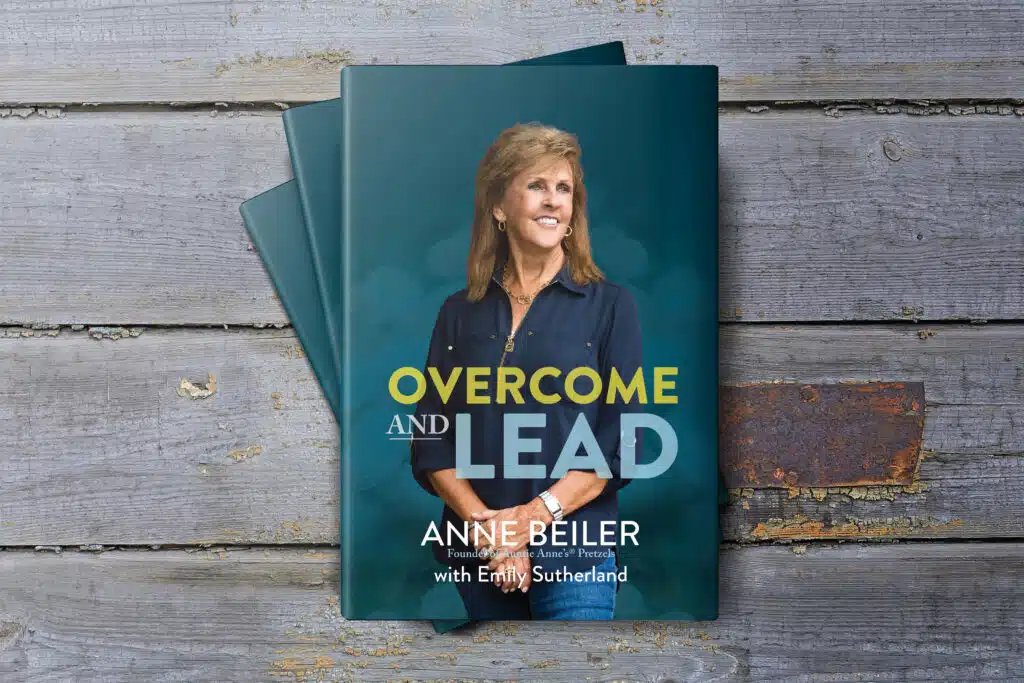
Thank You To Our Sponsors
Join your peers at the Show for foodservice in Chicago, May 18-21, and get a taste of the future!
Visit the official Show website and register with promo code PODCAST24 to save $55 off the current registration rate.
Promotional offer expires on May 16. Offer is redeemable through online registration and is only valid for operators. Offer cannot be combined with any other promotion and does not apply to current 2024 show registrants. Non exhibiting suppliers are subject to a higher badge rate.
They handle everything end-to-end from delivering, filtering monitoring, collecting, and recycling your waste cooking oil.
Restaurant Technologies customers save 10-15% on their insurance premiums and even get bonuses for any new customer referrals.
Increase restaurant sales, optimize guest throughput, and boost customer engagement all on one seamless platform.
Request a demo!
Top equipment brands, extensive inventory, everyday low prices, and 60 years serving independent food service operators.
Want to become a podcast sponsor?
Please get in touch with Roger at roger@restaurantrockstars.com
